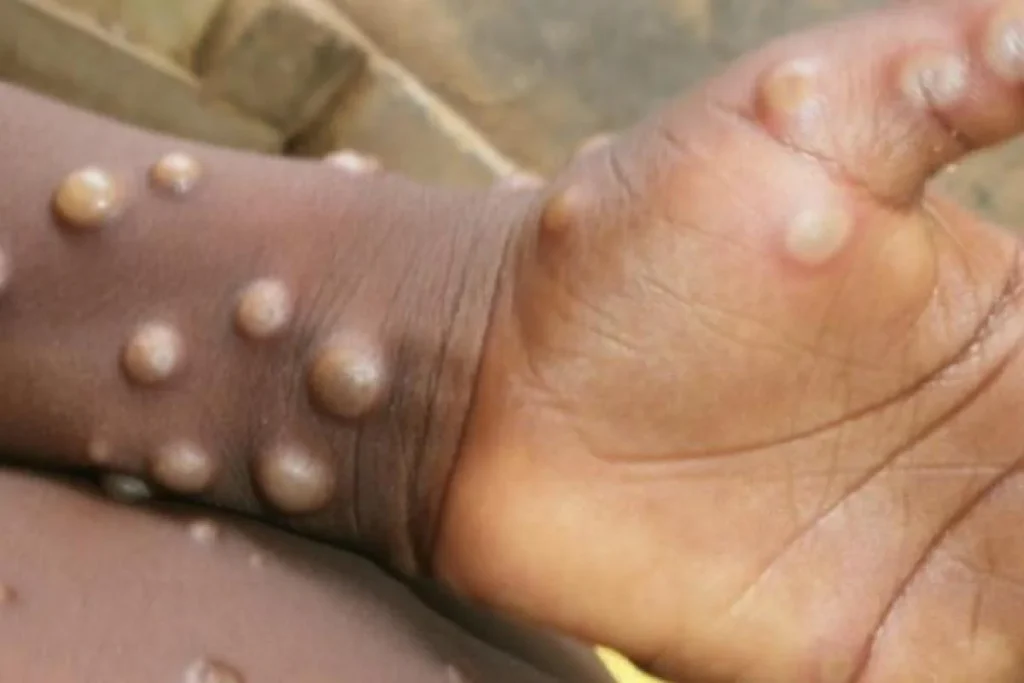
The Nigeria Centre for Disease Control (NCDC) has reported 24 additional monkeypox cases in seven days from across 12 states in the country.
The NCDC reported the additional via its official website, stating that a total of 157 positive infections of Monkeypox have been confirmed in the country between January 1 and July 31,2022.
Recall that Monkeypox is an ongoing outbreak, a viral disease, that was confirmed in May 2022. The initial cluster of cases was found in the United Kingdom where the first case was detected on May 6, 2022, in an individual with travel links to Nigeria.
Monkeypox is caused by a virus that, despite periodic outbreaks, is not thought to spread easily from person to person and historically had not spurred long chains of transmission within communities.
The public health agency said of the 24 additional cases, Ondo State has five, Lagos and Kano three each; Abia, Adamawa, Bayelsa and Kwara two each and Delta, Anambra, Gombe, Rivers and Nasarawa one each.
It said that four deaths have been recorded in four states, which were; Lagos, Delta, Ondo and Akwa Ibom.
According to it, from January 1 to 31st July 2022, there have now been 413 suspected cases and 157 confirmed cases (105 male, 52 female).
The diseases agency said that these were from 26 states – Lagos (20), Ondo (14), Adamawa (13), Delta (12), Bayelsa (12), Rivers (11), Edo (eight), Nasarawa (eight), Plateau (six), Anambra (six), Federal Capital Territory (five), Taraba (five), Kwara (five), Kano (five ), Imo (four), Cross River (three), Borno (three), Oyo ( three), Abia (three), Gombe (three), Katsina (two), Kogi (two ), Niger (one), Ogun (one), Bauchi (one) and Akwa Ibom (one).
“From September 2017 to July 31st, 2022, a total of 12 deaths have been recorded in nine states – Lagos (three), Edo (two), Imo (one), Cross River (one), the FCT (one), Rivers (one), Ondo (one) Delta (one) and Akwa Ibom (one),” it stated.
Meanwhile, unlike COVID-19, the Monkeypox virus requires intimate, often skin-to-skin contact with an infected individual’s rashes, scabs, bodily fluids, or contaminated linens to spread. So, with at least some known transmission routes, available diagnostic tests, and two vaccines on offer, monkeypox should have been easy to manage across the globe.
Yet, cases — most among men who have sex with other men — are still rising at such an alarming rate that the World Health Organisation (WHO) has now declared a public health emergency, leaving many people baffled about what went wrong.
Since May more than 80 countries where monkeypox is not endemic have reported nearly 28, 000 cases. including about 7, 500 in the U.S. All states except Montana and Wyoming have confirmed cases, but more than half have been recorded in New York, California, Illinois, Florida and Texas.
Among the cases with available data, 94 per cent were in men who reported recent sexual or close intimate contact with another man. More than half 54 per cent of cases were among Black and Hispanic people, a group that represents about a third 34 per cent of the general US population and the share of cases among black people has grown in recent weeks, according to the US Centre For CDC analysis.
Meanwhile, Some Public Health experts have recommended practising safer sex and “having fewer sexual partners, particularly anonymous partners, even when they don’t have symptoms” but warned against stigmatising anyone from the LGBTQ+ community.
They said whenever any kind of infection is linked with sexual transmission it comes with a stigma.
They said that monkeypox is not considered a sexually transmitted infection, but it has been transmitted through close sexual contact, because of that transmission it has now been stigmatised because we do stigmatize anything that has to do with sex.

